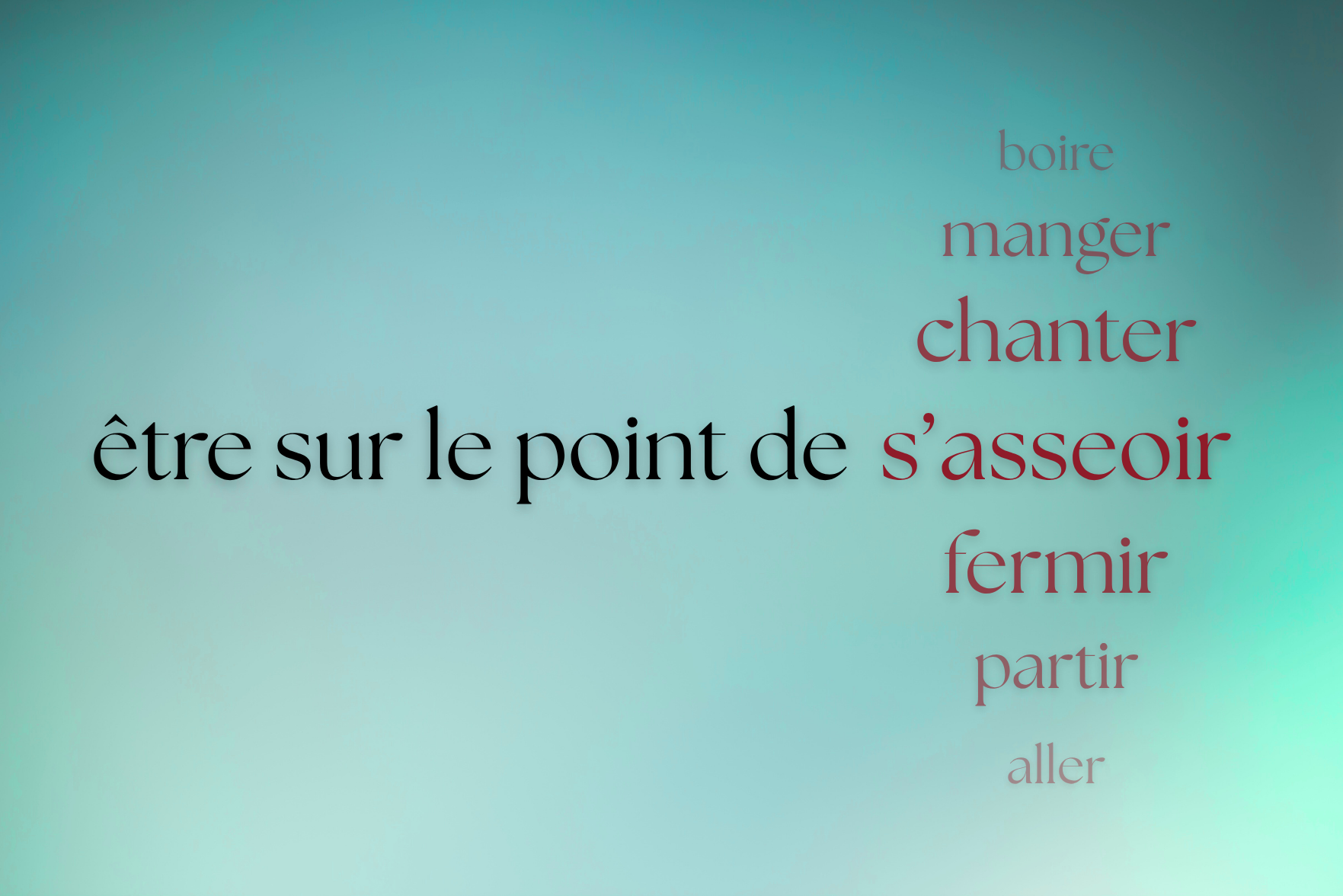Être sur le point de
Posted by Josh on 10th Nov 2025 in the blog in the french grammar category
What does 'Être sur le point de' mean?
'Être sur le point de' means 'to be about to [do something]'. It literally translates as 'to be on the point of'. It's a common expression in French, and a useful way to talk about something that's going to happen in the very near future.
'Être sur le point de' is always followed by an infinitive verb. You just need to know how to conjugate être (to be) to be able to use it. Make sure to read through our full conjugation list of être so that you know how to conjugate the most common verb in French in any tense.
Examples of sentences using 'Être sur le point de' in the present tense
Je suis sur le point de sortir. - I am about to go out.
La conférence est sur le point de commencer. - The conference is about to start.
Les magasins sont sur le point de fermer. - The shops are about to close.
Note that you cannot use a time indication with the phrase 'Être sur le point de'. If you want to be specific and indicate exactly when an imminent event will happen, you can use the near future tense, as in this example:
Les magasins vont fermer dans 5 minutes. - The shops will close in five minutes.
For more on the near future tense, check out Lesson 20 of the Complete French Course.
'Être sur le point' + negation
When we use 'Être sur le point de' with a negation, ne comes before être and pas comes directly after, as in the following example:
Tu n’es pas sur le point de partir ? - Aren’t you about to go out?
'Être sur le point' + object pronoun
When we use 'Être sur le point de' with an object pronoun, the object pronoun comes after de, as in the following examples:
Je viens de préparer un gâteau et je suis sur le point de le mettre au four. - I have just prepared a cake and I am about to put it in the oven.
Nous adorons les pommes, d’ailleurs, nous sommes sur le point d’en acheter pour le déjeuner.- We love apples. In fact, we are about to buy some for lunch.
This topic is covered in greater depth in Lesson 20 of the Complete French Course.
'Être sur le point' in the imperfect and future tenses
Note that this expression can also be used in the imperfect and the future tenses.
In the imperfect tense, it is usually followed by a clause in the passé composé, as in the following examples:
Nous étions sur le point de manger lorsque Paul est arrivé. - We were about to eat when Paul arrived.
J’étais sur le point de sortir quand tu as appelé. - I was about to go out when you called.
And with the future tense:
Lorsqu’elle arrivera, nous serons sur le point de partir. - When she arrives, we will be about to leave.
Check out some of our other blog posts!
11 French painters you should know
Posted on by Josh in the french culture categoryCan you tell the difference between Manet and Monet?
Read moreExperience French Culture from the Comfort of your Home
Posted on by Nancy in the categoryTravel to and from France, and within the country, is pretty much nonexistent for the near future, as the country is on lockdown. For those of you who had plans to travel to France around this time, we know that it must have been devastating to cancel or postpone your trips.
Read moreHave fun learning French Today
People from all over the world enjoy learning French with Alexa Polidoro’s popular French audio and video lessons.



